Global societal challenges together with growing public interest in science present both opportunities and challenges for the research world. Open Science is a way to ensure that citizens are involved in research, and that the views of different stakeholders are taken into consideration. How science communication practitioners, researchers, policy makers and research funding bodies can engage successfully with the public, and ensure that their values and interests are taken into account, was showcased and discussed at an international workshop on 25 June 2021.
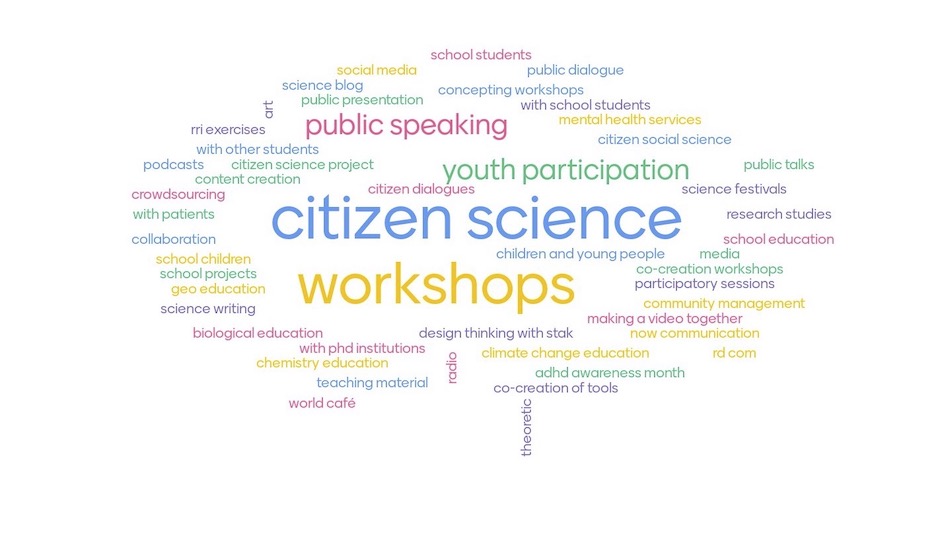 Over the past four years, the European ORION Open Science project has been developing and testing a wide range of innovative methods and activities for engaging the public in science. Some of these were presented at the session “Engaging the public in science through dialogue and co-creation” at the Future of SciComm conference on 25 June, an international conference attended by over 900 actors from research and the practice of science communication. The session was the first of a series of international workshops that the ORION project will run to showcase its results. It brought together close to 70 participants from across Europe, equally representing science communicators/engagers and researchers. The participants had some or little experience of co-creation with stakeholders mentioning the following types of science engagement:
Over the past four years, the European ORION Open Science project has been developing and testing a wide range of innovative methods and activities for engaging the public in science. Some of these were presented at the session “Engaging the public in science through dialogue and co-creation” at the Future of SciComm conference on 25 June, an international conference attended by over 900 actors from research and the practice of science communication. The session was the first of a series of international workshops that the ORION project will run to showcase its results. It brought together close to 70 participants from across Europe, equally representing science communicators/engagers and researchers. The participants had some or little experience of co-creation with stakeholders mentioning the following types of science engagement:
The ORION Open Science cooking experience
The ORION project coordinator, Michela Bertero, Centre for Genomic Regulation, CRG, in Barcelona summarised the ORION project activities as a cooking exercise of co-creation formats and methodologies, citizen science approaches, public and multi-stakeholder dialogues as well as gamification. Some specific project highlights, and there’s still more to come before the project ends in September, are the development of an Open Science Policy for the Czech Republic and the co-creation of the Genigma game, also showcased in this film.
During the session participants had the opportunity to dive more deeply into the methodologies and learnings with those behind the activities in two parallel breakout rooms; one on Gamification and Co-creation and the other on Engagement and public dialogue in practice.
Gaming for change
Two gaming projects initiated by the ORION project; Genigma and VACCINE were used to illustrate how co-creation can be an effective way of including a wide range of stakeholders in science. Gloria Lligadas Penarrubia, CRG gave an introduction to the successful co-creation process used to develop the citizen science game project Genigma. The aim of the game is to help researchers discover alterations in cancer cells. The other showcased gaming project is Vaccine, a digital game to inform students how vaccines are developed and the project is coordinated by Fergus Powell, Babraham institute.
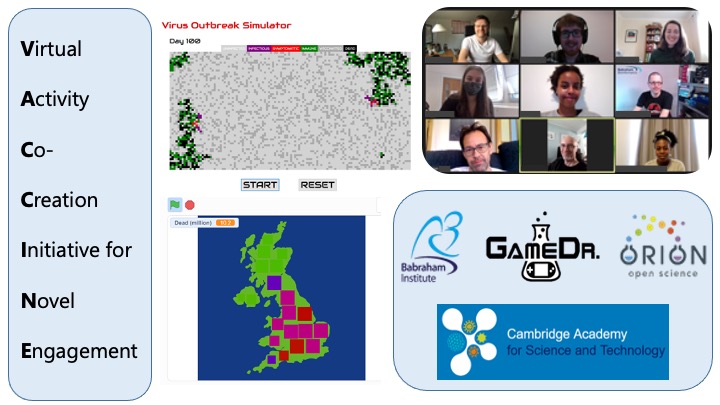
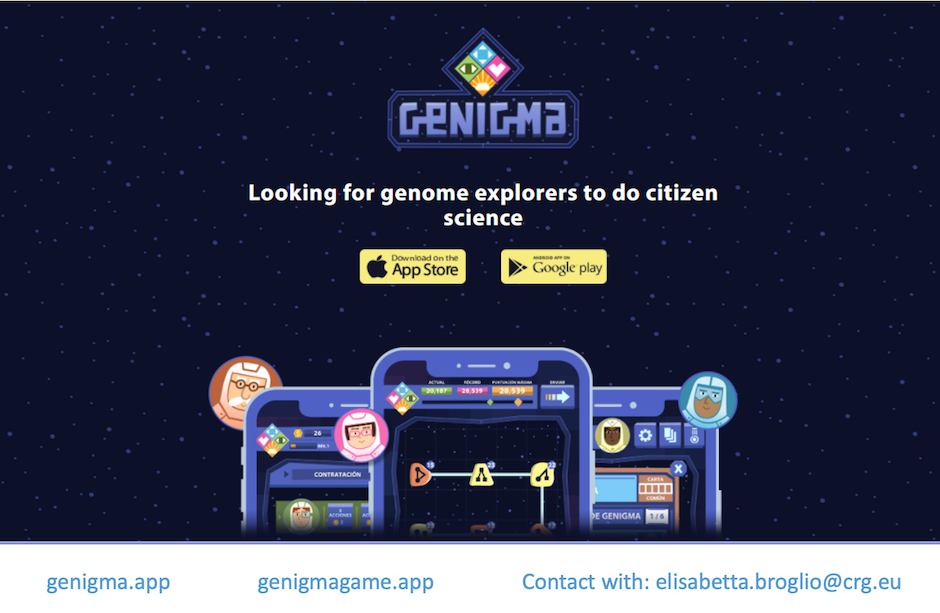
The co-creation workshops run in the two gaming projects shared many similarities; both focused on generating ideas for game design and game mechanics and involved a wide range of stakeholders, including scientists, gamers, game developers and the general public. As the focus of the VACCINE game is school children, both teachers and pupils from a local school in Cambridge participated in the process.
What struck the two project coordinators as most surprising was the time factor, i.e that it took much longer time than expected to develop the games. This was mostly due to the huge amount of ideas generated from the participants involved in the process. Another surprise in the VACCINE project was the level of insight into viruses that the pupils had, which made the game mechanics more compelling.
The benefits to researchers of using online games were also discussed. Whereas the Genigma game will provide researchers with thorough genome analysis and gather new data (that will be made available to other research projects too), the VACCINE game is not generating new data for researchers, but instead is a tool they can use when explaining their work. Moreover, being part of a collaboration project, which includes stakeholders from different sectors of society, is of course also very beneficial. Engaging with citizens gives researchers new knowledge and helps to develop their communication skills, Fergus Powell added.
Top tips for developing a research game
At the end of the breakout session Gloria and Fergus shared their top five tips for developing and co-creating an online research game:
- Speak and listen to your intended audience
- Have clear aims of what you want to achieve
- Test as much as possible, try it on different target groups, test different aspects…
- Set aside enough time
- Plan for sustainability and think of the long term perspective beyond the launch
Both ORION games will be officially launched in September.
Engagement and public dialogue in practice
When and how should we engage with the public in complex and controversial issues and new disruptive technologies? The ORION project has been testing out several different methodologies for stimulating dialogue, gathering opinions, and exploring complex subjects. In this breakout session, participants heard about the successes, challenges and learnings from three initiatives, including a series of public dialogues and a successful arts residency.
During 2019-2020, ORION conducted a series of public dialogues in four European countries; Czech Republic, Germany, Sweden and the UK, to explore public attitudes to genome editing in life science research. Emma Martinez, from the Babraham Institute in the UK spoke about how the participating scientists had found it a particularly enriching and reflective exercise, surprised by the participants’ interest in and support for fundamental research. Participants valued the opportunity to participate and felt empowered to participate in similar future engagement activities.
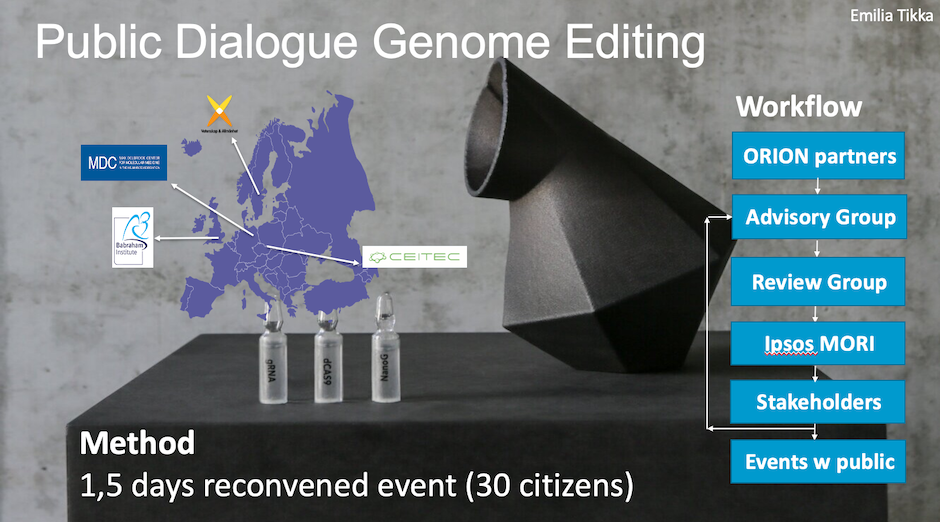
The Centre for Genomic Regulation (CRG) in Spain also ran a public dialogue to inform their next strategic plan, which was moved online due to the Covid-19 pandemic. Marta Solis from CRG explained how this engagement activity is informing the work of the research centre and how it changed certain participants’ perceptions. Notably, a member of CRG senior management, who had been slightly skeptical about the value of involving citizens in their strategic planning, found the dialogue particularly productive and two further public dialogues are now planned.
The labs at Max Delbrück Center for Molecular Medicine hosted a Finnish artist, Emilia Tikka, as part of a three-month arts residency (link) to better understand how the genome editing technology CRISPR might change our world. As a result, Emilia developed an arts installation exploring a possible future scenario that asked the question “Would you like to live forever?” that has subsequently been used to promote dialogue and reflection with public audiences. As Luiza Bengtsson explained, the collaboration process was particularly tricky at the start as scientists and the artist tried to establish a common language and find common ground. Key to overcoming this ‘culture clash’ was professional facilitation and the involvement of public engagement professionals, after which the project took off.
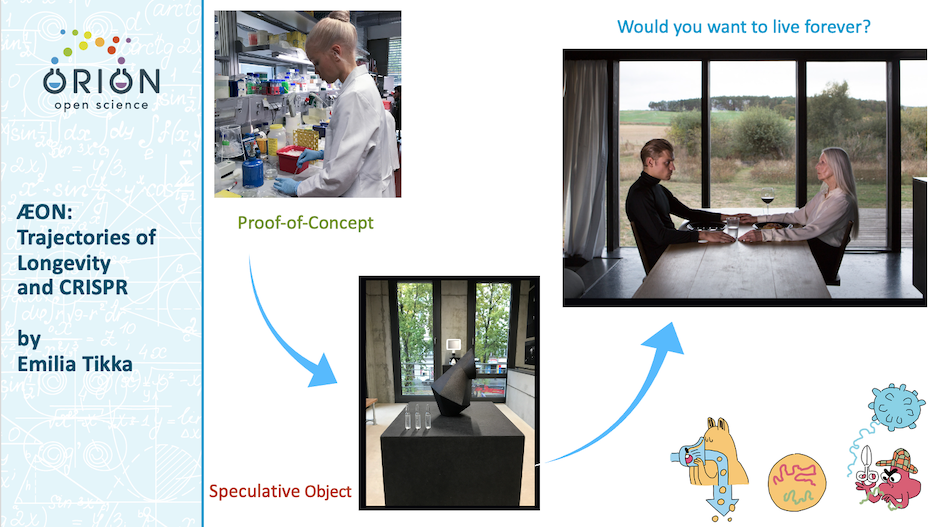
The legacy of the ORION Open Science project
On 30 September 2021, the ORION Open Science journey, which started in 2017, will come to an end. However, the mission of putting Open Science into practice will go on, as the coordinator Michela Bertero, CRG stated:
“We’re still in reflecting mode thinking about and analysing what we learned. The co-creating activities have been documented in detail – methodologies are available as well as online training, fact sheets and inspiring stories that also capture the impact of our work. The research institutes and funding bodies involved are also committed to continue changing the organisational cultures and action plans of Open Science will be presented at the end of the project.”
ORION partner organisations are also working on individual institutional action plans for embedding Open Science within their institutions. The Babraham Institute in the UK has based its around the European Commission’s 8 pillars of Open Science. The action plan, which will shortly be published, also summarises the work the Institute has done during the project. The other action plans will be presented at the final conference of the ORION project on 27-28 September.
The ORION project also leaves behind a toolbox of training resources on Open Science which can be easily accessed via Zenodo.
“Open Science has advanced a lot during the lifespan of the project. Our legacy is that we have made the first steps towards raising awareness of the importance of Open Science and its practices. The ORION training has been instrumental! We’ve developed two MOOCs and held extensive Open Science training workshops across Europe and online during the project” said Luiza Bengtsson, MDC, who is responsible for training within the ORION project.
Can you do Open Science on a shoestring? This was the final question discussed at the session. It was acknowledged that organising co-creation workshops, setting up citizen science projects and running public dialogues takes a lot of time and resources. A lot depends on the infrastructures, personnel resources and tools available. It is also important to understand how to adapt content to different groups, have access to facilitation and synthesizing expertise, as well as how to analyse all the collected data.
Next steps and finalising the Open Science menu
What started out as a cooking experience on embedding Open Science and RRI has developed into a full set menu of co-creation tools, training materials, citizen science projects and some inspiring stories to top it off. A virtual goodie bag containing some of these tools and resources was presented to participants.
Participants were also invited to register to receive more information about the forthcoming virtual final conference of the ORION project on 27-28 September, where more results will be showcased and the implementation of Open Science policy on different levels will be discussed. Everyone is welcome to join these discussions. Find out more about the event.
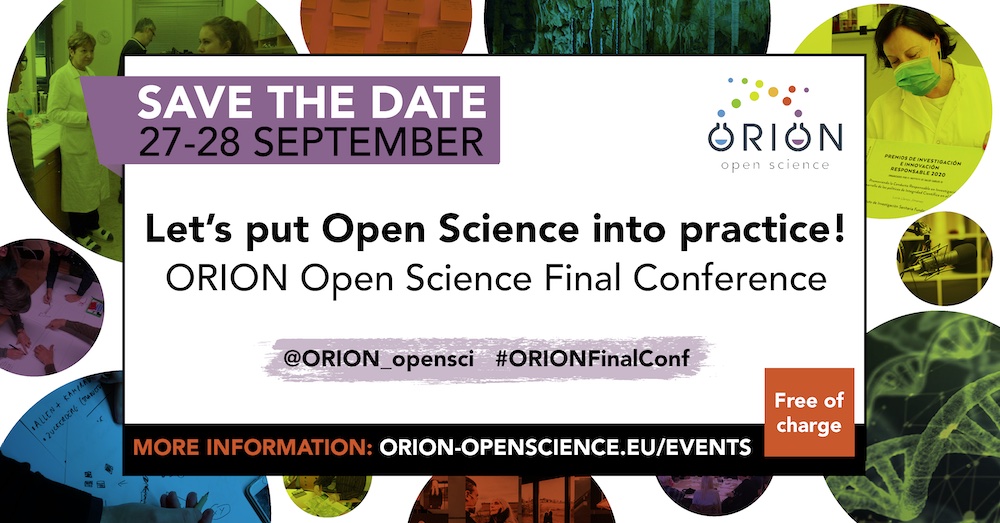
Please see the recordings from the sesssion ”Engaging the public in science through dialogue and co-creation”:
More information
If you would like to find out about ORION, please contact Maria Hagardt International Relations & Communications Manager and project manager for ORION Open Science at VA.
You can also follow the project on Twitter: @orion_opensci, on Facebook , LinkedIn and read more about the project at the ORION website.
